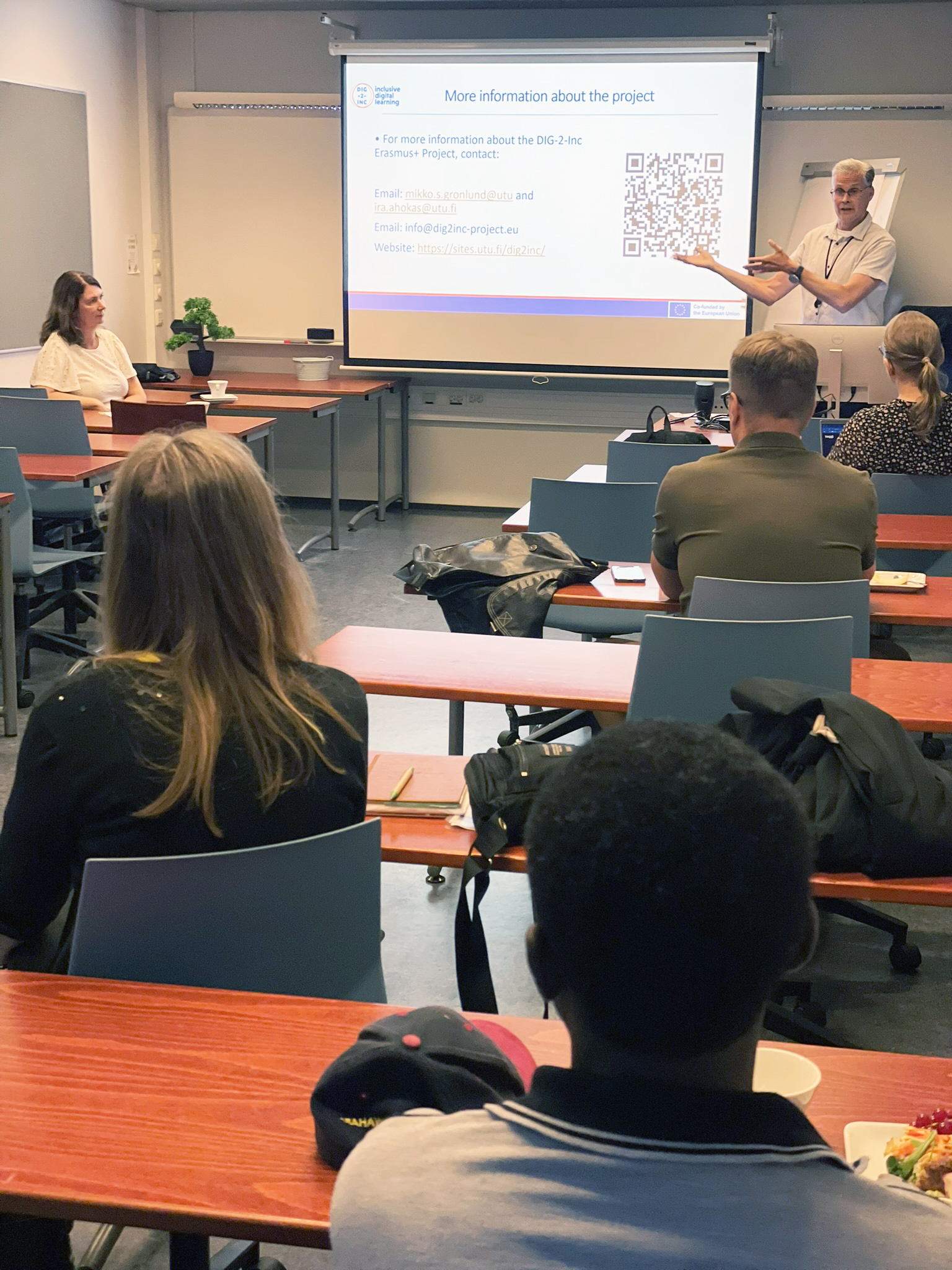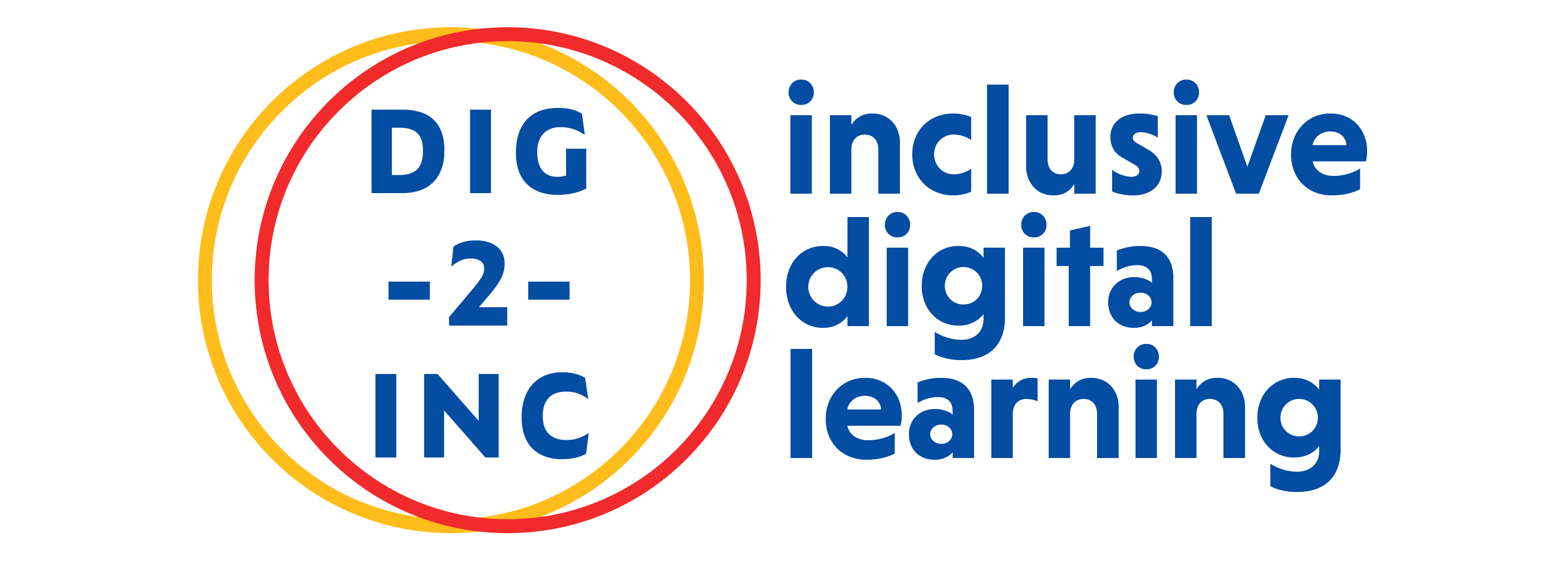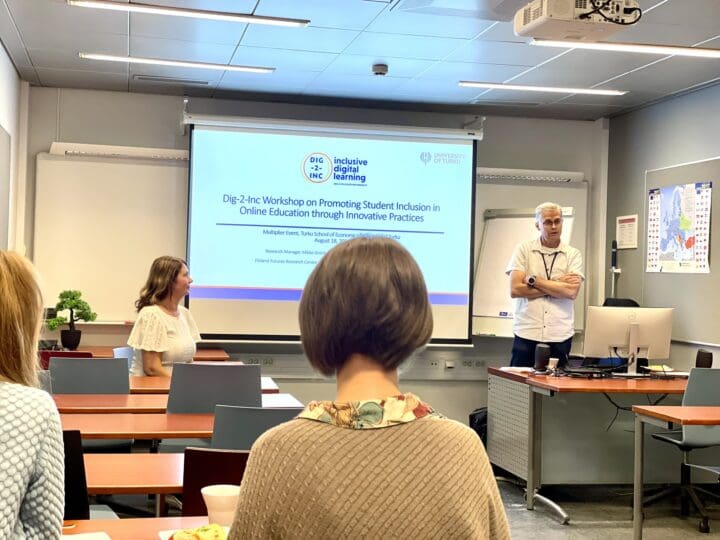Workshop in Finland promoted student inclusion in online education through innovative practices
On August 18, 2025, the Finland Futures Research Centre hosted the second multiplier event of the European research project Inclusive Digital Learning, which seeks to improve digital inclusion for disadvantaged students. The event was open to teachers, students, university staff, instructors, and others interested in advancing inclusive digital education.
 The project unites partner organisations from Finland, Bulgaria, France, Germany, Italy, and Romania, all committed to developing and sharing inclusive and digitally enhanced learning practices. The workshop in Finland aimed to showcase the project’s activities and results while supporting their long-term integration into educational institutions, particularly to benefit students from low socio-economic backgrounds.
The project unites partner organisations from Finland, Bulgaria, France, Germany, Italy, and Romania, all committed to developing and sharing inclusive and digitally enhanced learning practices. The workshop in Finland aimed to showcase the project’s activities and results while supporting their long-term integration into educational institutions, particularly to benefit students from low socio-economic backgrounds.
At the event hosted by the University of Turku in Finland, participants were introduced to the project’s philosophy, methodologies, and design principles, beginning with innovative solutions to enhance student inclusion in digital learning environments. Participants explored digital tools and resources that had been developed and tested through pilot sessions across the partner countries. The workshop also created space for university staff and students to engage with project experts and discuss how to promote inclusive digital learning at the university, and to ensure the sustainability of the project’s outcomes beyond its completion.
– – –
The Dig-2-Inc – Inclusive Digital Learning project is an Erasmus+ initiative designed to equip educators and staff with the necessary training and design principles to better support students, particularly those from low socio-economic backgrounds. The project involves a diverse partnership from six countries: Finland, Bulgaria, France, Germany, Italy, and Romania, all working collaboratively to promote digital and inclusive learning practices.
For those interested in learning more about the Dig-2-Inc Erasmus+ project, further details can be obtained by reaching out directly to the project researchers via email.

